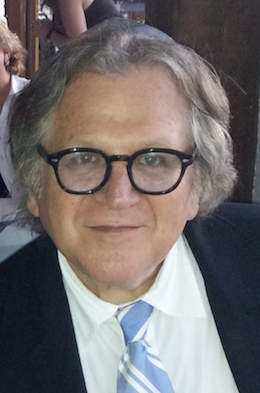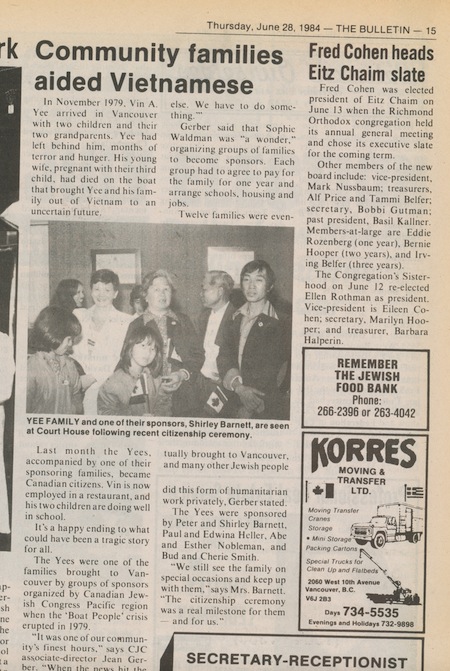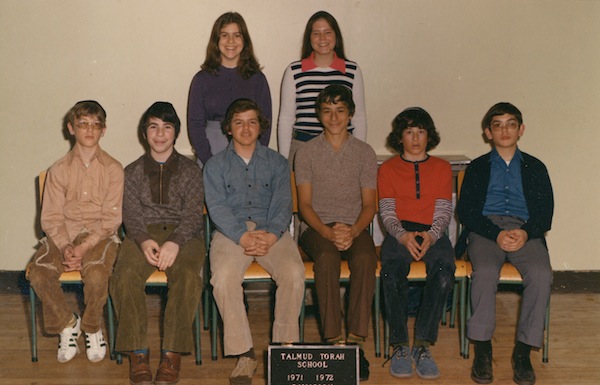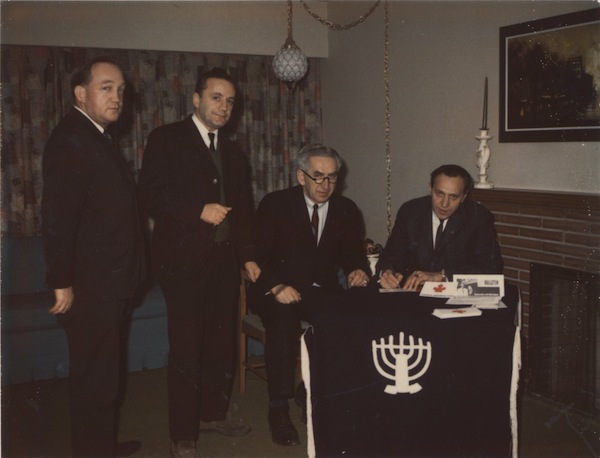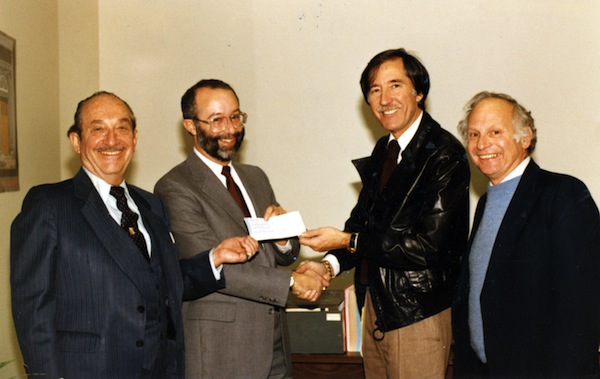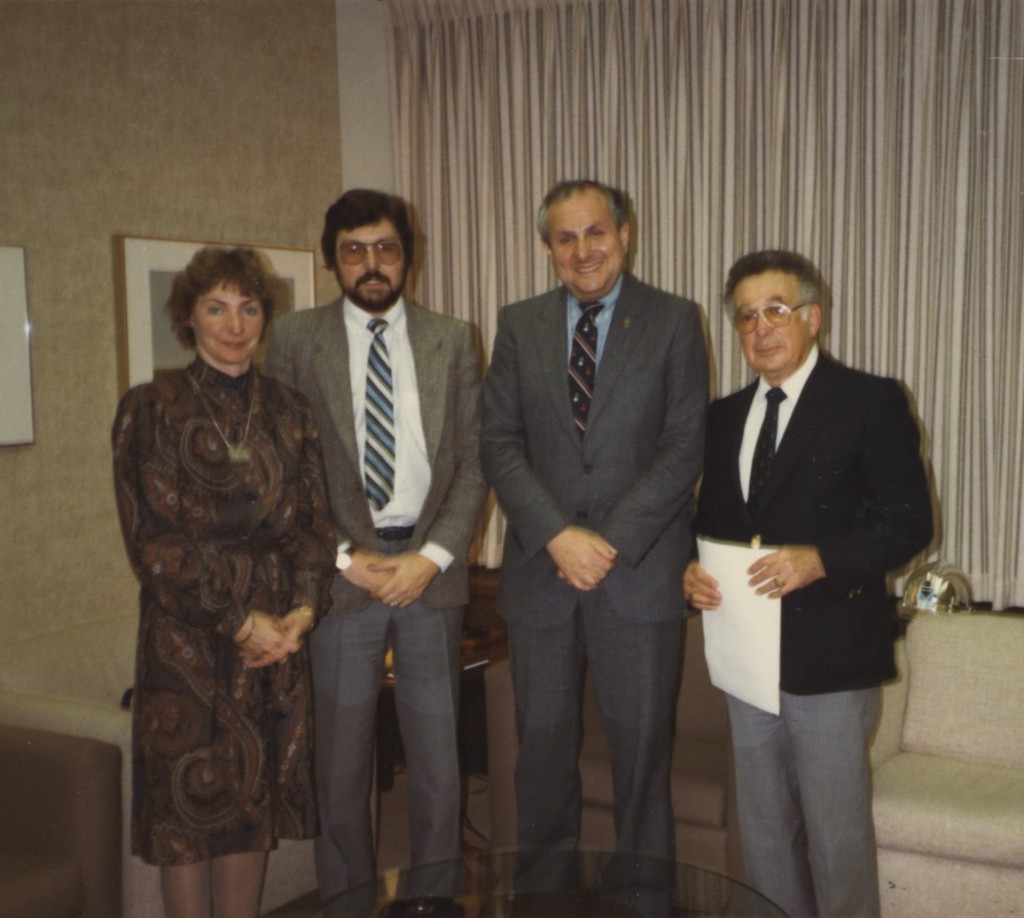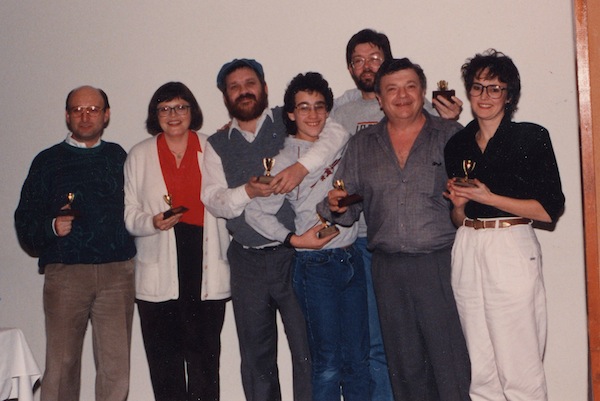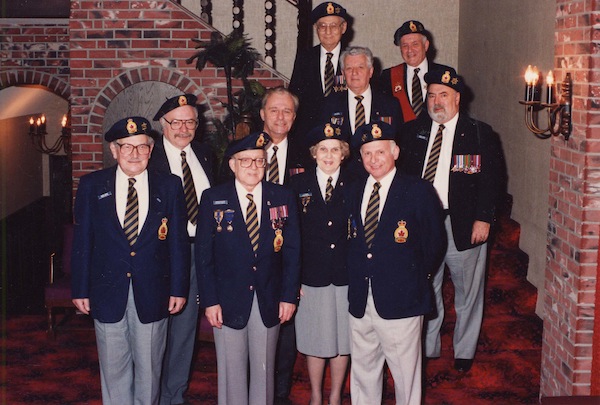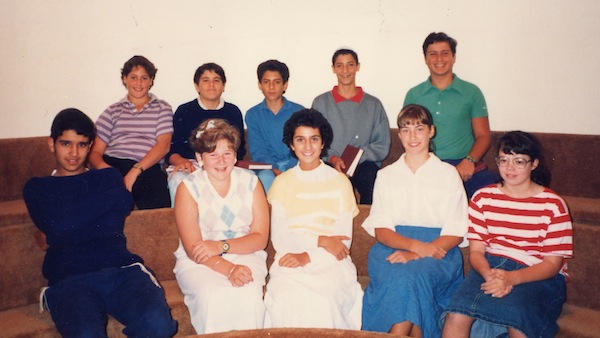Shimon Fogel, chief executive officer of the Centre for Israel and Jewish Affairs (photo from CIJA)
Shimon Fogel, chief executive officer of the Centre for Israel and Jewish Affairs (CIJA), was in Vancouver June 20 to speak at the Jewish Federation of Greater Vancouver’s annual general meeting. He spoke with the Jewish Independent prior to the gathering.
“CIJA does not regard itself as an independent organization with an independent ego,” he said. “We very much see ourselves as an internal mechanism of the community. We regard making a presentation at the AGM as addressing our stakeholders and providing an assessment of what value we add to the Federation program, and giving an opportunity to receive feedback.
“This takes us back to what the rationale was in consolidating different Jewish organizations together and the value of integrating all of the different silos that emerged in the Jewish community, for good reasons in their time,” he said, referring to the merging of Canadian Jewish Congress and the Canada-Israel Committee to form CIJA in 2011. “Integrating everything ensures that there is an holistic approach. It also provides us with an opportunity to show Canadians that we are not unidimensional. If I were just working within the Canada-Israel Committee, you would think that there were no issues of importance to me other than Israel, but the truth is that I am as seized with the issue of the protection of transgender rights as I am with immigration issues and having a meaningful response to the international refugee crisis.”
The dissolution of CJC and the CIC was controversial at the time, however, and there are community members who still feel their absence.
“We were never sanguine about people’s attachment to the CJC,” said Fogel. “It had a long and storied history. There were points during that history when the CJC shined as an example not just in Canada, but internationally. There was never an intent to diminish that or marginalize the importance that they had. The reality was that the political landscape changed, pressures within the community in terms of limited resources came to bear, and there was a need to eliminate the kind of competition that was emerging between one agenda and another…. Confusion was beginning about this alphabet of acronyms and who does what, and this made it obvious that there was real benefit in consolidation.”
The issues with which CJC dealt remain on CIJA’s agenda, said Fogel. “On balance, at any given time, we’re spending way more than 50% of our time and resources both staff and programming on things other than Israel,” he said.
As an example, the week prior to when Fogel spoke with the Independent, an interfaith coalition called on elected officials “to support a robust, well-resourced, national palliative care strategy.” CIJA was involved in this initiative.
“The recent discussion about physician-assisted dying (PAD) [prompted by Bill C-14] begs a larger question, one that we have been concerned about for a long time, but didn’t lend itself to the kind of focused attention that we were able to secure in the last few weeks,” explained Fogel. “All evidence, if we look at the countries that have adopted some kind of protocol with regard to PAD, points to the conclusion that almost no one in a given society accesses that option to manage their end-of-life situation.
“If we were to translate it to Canadian terms, I don’t know that we would have two dozen a year who would be availing themselves of that option. What that means is a need to ensure that resources are in place to provide support for the individual who is suffering the illness and, no less importantly, for their family members, the front-line caregivers, who are assisting and supporting the individual as they approach end of life. Because there was such a focus on PAD, we felt that it should not be lost in the course of the public policy debate that what’s really important for Canadians to appreciate is that as we are confronted by an aging population and we need to look at improving palliative care options. We had to wrap our heads around a national strategy that was going to ensure the same set of standards that are applied to other dimensions of the health-care system. A discussion now about palliative care is an important and therapeutic complement to the narrow-band discussion about PAD.”
Palliative care covers a much broader range of issues and affects a much larger group of people than PAD. With the aging population, said Fogel, “we have adult children who have become caregivers, who are being torn in multiple directions, between home responsibilities and work, between attending to their parents and attending to their children; it is costing them physically, emotionally and financially.
Accommodation in the workplace is not what it should be, and the provision of relief support is not there in an adequate way and, sometimes, not there at all; for example, in communities outside of the largest urban centres.
“We want governments to direct their attention to this. We are coming up to a new national-provincial agreement on the provision of health care in the next year or so. This is a health-care issue, not a social or political issue. It has to be seen as part and parcel of the package of health-care services that are provided, or there is no hope of getting it addressed in any kind of meaningful way.
“There are things that are unique to the Jewish community but most things are generic and we have to constantly reinforce that the experience of the Jewish community is simply a reflection of the broader experience within Canadian society,” he added. “Because we are a little more sophisticated in our infrastructure and the importance that we attach to communal organization, we are often at the leading edge of issues, so reaching out and partnering with others is both important to advance the issue and provides us with an opportunity to develop relationships that are important both for Canada as a society and for us.”
One of those to whom CIJA reached out was Prime Minister Justin Trudeau – well before he and the Liberal party were elected last fall.
“There were some challenging times a number of years ago and, in that period, the Conservative party asserted themselves as a party that was remarkably sensitive and responsive to the needs of the Jewish community, not just with regards to Israel but on issues of antisemitism and inclusion,” Fogel said. “That skewed things perceptually more than they might have been otherwise, but we’ve never stopped investing in the Liberal party.
“People like Justin Trudeau were individuals who we reached out to and brought to Israel long before he was a candidate. He went with his wife and then facilitated all of his advisers to participate in trips to Israel, so we greeted the new government knowing all of the principals and having developed a very, very close and positive relationship.
“That it’s a very different government is beyond question and that’s really genetic to their whole approach to things,” Fogel acknowledged. “They attach a great deal of importance to multilateralism and that’s distinct from the approach of the previous government, which was fond of saying that it was driven by principle and principle alone. The Trudeau government sees inherent value in partnering with other countries. That brings its own challenges because, when you are just responsible for your own opinion, you can articulate whatever opinion you want; when you want to join with others, it means accommodating different views, whether they are substantially different or it’s just nuance.
“That having been said, I think that the record over the last eight months has been remarkably strong. I’m fond of pointing to what many saw as a low point as proof that things really are quite good. You will recall back on International Holocaust Remembrance Day, some were quite upset that in the initial comment from the PMO [Prime Minister’s Office] there was no explicit reference to Jews. Now, I know how that happened. January is still very early days in the new government, they were still staffing up. This was a whole new government and really a whole new generation – 10 years is a long time in politics. Not everything was in place [for the Liberal government], and this was an absolutely honest oversight.
“The real test,” said Fogel, “wasn’t that a comment was released that didn’t include the word ‘Jewish’ – the test was that, within half an hour after we had flagged for them that this wasn’t being well received, a new statement was issued which was quite explicit. The degree of responsiveness that the government demonstrates for a concern expressed by the Jewish community is the real test for the quality of the relationship.”
CIJA does not take its relationship with the government for granted.
“We’re grateful for it,” said Fogel. “Even in terms of things that are Israel-related. We think the French-led initiative on an Israeli-Palestinian peace process is not just unhelpful, it has the potential to push back a peace process rather than serving as a catalyst for it. Now, because of Canada’s desire to be part of the international effort on anything, doesn’t matter what, Canada wanted to participate in a conference on that a few weeks back, which we accept because that’s the orientation of this government.
“What we had asked for was for Canada to advocate for a particular direction, and they were very responsive. They made the point about nothing replacing direct negotiations and that established resolutions like [the 1967 United Nations Security Council Resolution] 242 had to be seen as the foundation for anything going forward. For good measure, they threw in that Israel was their strong ally, language which does not go way back in Canadian descriptions of the relationship with Israel.
“I don’t think it’s going to remain so consistently good on each issue that comes up,” he cautioned. “I think there will be times we differ from the government. People find it a little hard to believe, but we differed from the last government too and the relationship was sustained notwithstanding.”
One issue on which the current and previous federal governments have agreed is their condemnation of the boycott, divestment and sanction movement against Israel. The issue is high on CIJA’s agenda, of course.
“I see the BDS movement as inherently toxic,” said Fogel. “I see it as antisemitic and I see it as a base, cynical strategy. What it does is exploit the natural and rightful resonance that human rights language has. The language of human rights has become almost a secular religion and it resonates with people so, when that is the language used in order to promote and advocate for something, the default inclination of most people of goodwill would be if not to embrace it, at least to refrain from criticizing it. Yet, we know that the genesis of the BDS movement is in anything but human rights, and core promoters don’t hide their core agenda to delegitimize, isolate and dismantle the Jewish state. What I’m gratified at is that the progressive majority have come to recognize that BDS is not about critiquing a particular Israeli government or position, it’s about denying the right to self-determination of the Jewish people in a way that differentiates from the way you would treat any other group. The way that it iterates antisemitic tropes has prompted many to push away from association with BDS, so I do take some encouragement from people finally starting to apply critical thinking to and connecting the dots and saying, no, this isn’t what it appears to be.”
When asked what are the most effective strategies for the Canadian Jewish community to fight against the negative aspects of the BDS campaign, Fogel said, “I don’t think it is limited to BDS – I think the best strategies to advance understanding boil down to three things.
“We have to be intellectually honest about who we are. The Jewish community offers something valuable to the larger society, and we should be eager to share that and to use that as a way to achieve the second thing, which is to partner with others. We have much more in common with others than that which separates us. We have a rich legacy to share. We have experiences that are instructive and helpful to others in terms of challenges that they face and, very often, we find ourselves in the position of providing advice and direction.
“The third is recognizing that we have to reach out to others on the basis of what is meaningful to them. I can feel whatever I feel about anything but I will never be able to present a persuasive argument if they can’t relate to the terms of reference. This has been, I think, both our greatest source of success and the greatest source of criticism from some sectors of the Jewish community. We can’t indulge in those emotionally satisfying but superficial arguments where we pound our fist on the table and say that we’re right because we have justice on our side; because, for most, that has no meaning and we’re simply relegated to the same place as our adversaries by those who can relate to neither. We have to communicate on the basis of shared values.”
Matthew Gindin is a Vancouver freelance writer and journalist. He blogs on spirituality and social justice at seeking her voice (hashkata.com) and has been published in the Forward, Tikkun, Elephant Journal and elsewhere.
